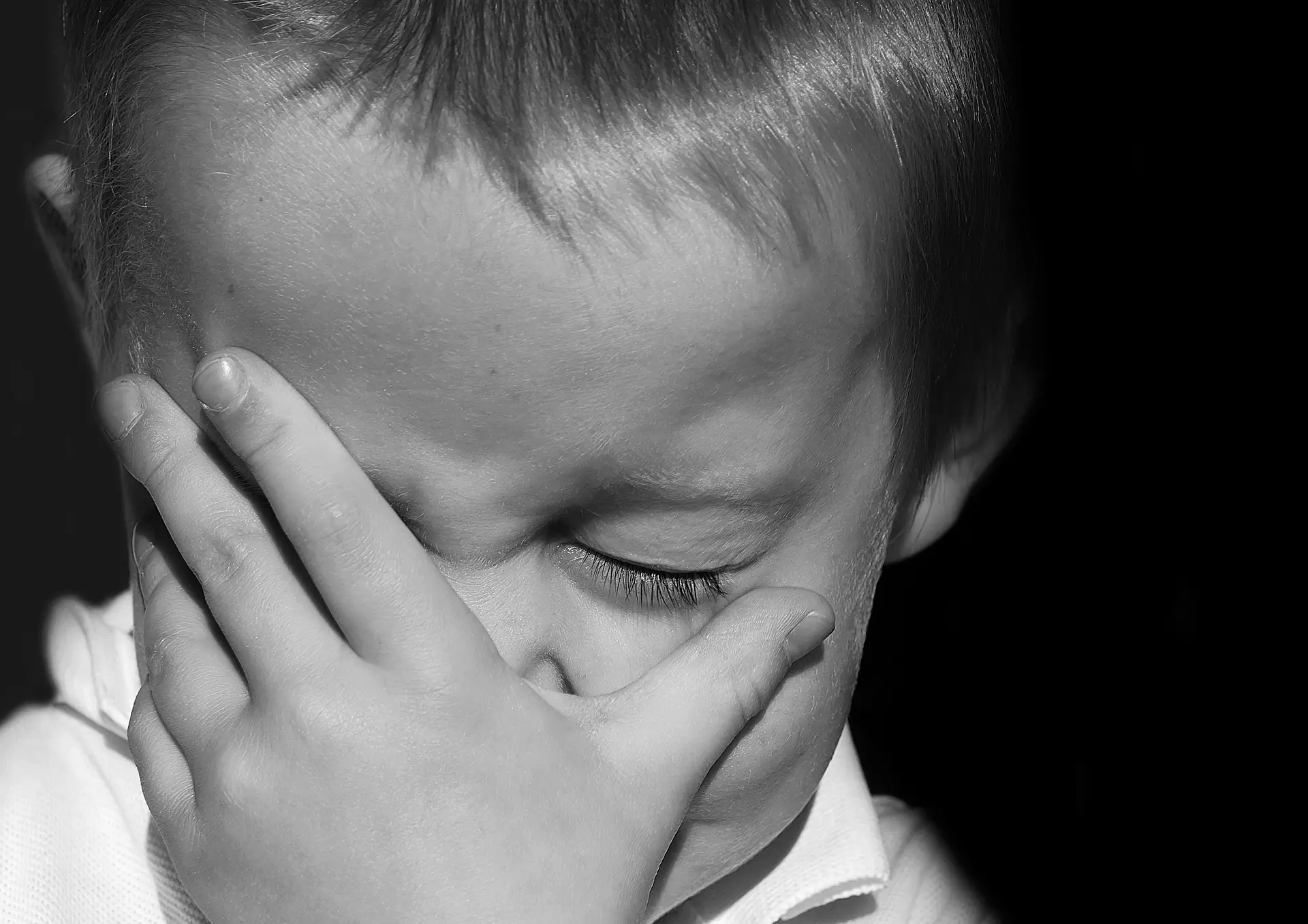Lack of sleep is a common nightmare for most new parents. According to a 2019 study published in the medical journal Sleep, parents often never get normal sleep until the child is six years old. The worst times for not getting any sleep were when a baby is three months old, when the baby wakes up every hour or so.
Trying to sleep in the times when the baby is asleep is often not an option. People need hours of uninterrupted sleep to be healthy. Fussy babies are quite effective at waking new parents up just when they’ve fallen asleep. All new parents wonder, “Why does my baby wake up every hour?”
Reasons Why Babes Wake Up Every Hour

Babies have different brain wave patterns than older children or adults. They go through all of the stages of sleep rapidly. One of those stages is wakefulness. They quickly cycle from a deep sleep to being wide awake. Often, when they wake up, they cry for a variety of reasons, which include:
- Hunger. Babies need a lot of energy to grow and so get hungry often.
- Teething pain, which starts when the baby is about six months old.
- Illness or pain from problems like an ear infection, fever, colic, or diarrhea.
- Prolonged exposure to tobacco smoke, which makes a baby colic more frequently.
- Travelling means a big change in daily and nightly routines. These changes often change the baby’s sleep patterns.
- Having a bottle or pacifier fall out of their mouths when asleep. Many babies are used to having something in their mouths when they fall asleep. While they sleep, the pacifier or bottle falls out. When they wake up with empty mouths, they cry.
- Separation anxiety, which starts when the baby is nine months old. It is normal for babies to panic when they wake up in a room alone. Most babies outgrow this when they are three years old.
Can Babies Ever Sleep Through the Night?
All babies are different in how long they are able to sleep. Even siblings may exhibit very different sleep patterns. Babies that do sleep for six or even seven hours at a time do exist. However, it is not known why some healthy babies wake up more than others. According to brain-wave studies, babies start having more adult-like sleep cycles when they are six months old.
The bad news is that it’s very hard to stop a baby from waking up every hour before the baby when he or she is younger than six months old. However, it is never to early to start good sleep habits to help encourage a baby to sleep longer than one hour at a time.
Should Babies Just Be Left Alone to Cry?
When sleep-deprived, getting out of bed to tend a fussy baby is downright painful. There is a school of thought that babies that are left alone to “cry themselves out” learn that if no one comes running at every single wail, they stop crying. This was popularized in a best-selling book by Gina Ford, The Contented Little Baby Book (1999).
Studies on babies being left to cry have come up with conflicting conclusions. There seem to be just as many who advocate for getting to a crying baby within a few minutes and those that don’t. It is known that when stressed, a body releases a hormone called cortisol. High levels of cortisol can cause brain damage and lowers the immune system. It is best to err on the side of caution, get out of bed and go tend to the baby whenever he or she cries.
Set Up a Sleep Routine

Some reasons why babies cry can be prevented if a good sleep routine is practiced. The good news is that it’s never too late to start a good sleep routine. This should help make good associations in the baby’s developing brain. Good sleep routines are also recommended for adults with sleep problems with or without cranky babies.
Tips for a good sleep routine include:
- Constancy is key. Always get ready for bed at the same time. Have the same times for baths and tucking into the crib.
- Keep the baby’s room dark, cool and quiet. These three things help promote sleep in adults, children and babies.
- Take turns taking care of a fussy baby, day and night. Studies suggest that when at least two family members tend the baby all through the day and night, the baby sleeps better. Studies usually centered on fathers and mothers taking turns, but theoretically, it can be more than one person in the family. This way, the baby doesn’t become too attached to one person, making separation anxiety a little less fearsome when and if it arrives.
- Letting the baby cry for just a few minutes is okay. Sometimes a baby will fall back asleep in five minutes.
- Avoid giving a bottle to the baby before sleep. People have done this for years because it does often help the baby fall asleep. However, this encourages cavities, the chance for sudden infant death syndrome (SIDS) and can increase anxiety when a baby wakes up and the expected bottle has fallen out of the mouth.
- Get the baby in the crib when they show any indication of drowsiness. These signs include yawning, pulling ears, rubbing eyes, or thumb-sucking.
Dealing with Teething
Teething starts at about four to seven months old. Signs of teething include drooling more than usual, constantly chewing, and waking up often because of the pain. The good news is that babies definitely outgrow this. In the meantime, teething needs to be treated every time the baby wails.
Pain can be treated with acetaminophen drops. This is the only painkiller safe enough for babies. The old-time remedy of baby aspirin is no longer recommended, since there is a risk of it causing Reye’s syndrome.
The best remedy for teething is cold. Let the baby chew on cold things, such as
- Your fingers dipped in cool water. Massage the gums and let them gnaw on your fingers for relief.
- Teething rings or teething toys left in the freezer. Use only rings made of solid plastic. Never use gel-filled toys or teething rings since they break easily and can be swallowed. Always check a teething toy or ring for cracks. Throw it away should they appear.
- Soak a clean washcloth without any loose threads in water, place in a plastic bag and put in the freezer. Loose threads are a choking hazard. Give that to the baby to chew.
Never use homeopathic teething tablets as some contain questionable ingredients, such as belladonna or caffeine. Teething jewelry such as beaded necklaces or bracelets is also not recommended because they could choke or strangle a baby.
Dealing with Separation Anxiety

Babies do not realize that when a loved one leaves a room, they are able to come back. Once they are out of sight, it’s like they’ve gone forever. They also may not realize that the loved one is in the next room. Their whole world is the room or place they happen to be in. So, when Mom or Dad goes away to sleep or for any other reason, the baby cries.
Practice going away for a few minutes and coming back while the baby is wide awake. Even if you think the baby does not understand you, tell the baby where you are going and that you’ll be back in a few minutes. These practice sessions help the baby get used to the idea that you can reappear after disappearing.
Also, have the baby be distracted by someone else while you go away for a little while. This is also a way for the baby to practice getting used to you while you are away. Do not make a long ritual out of saying goodbye. Make it ho-hum so the child doesn’t attach too much significance to it. No one else appears worried by your going away and so the child is less prone to worry.
The Least You Need to Know
One of the first things new parents want to know is, “How do I stop my baby from waking up every hour?” Babies wake up every hour for many reasons, including illness, teething, and separation anxiety. The main reason why babies wake up so often is that their young brains go through sleep cycles far more rapidly than adult brains.
There are many things a parent can do to help a baby sleep, such as establishing a sleep routine. The good news is that babies usually outgrow waking up every hour. The bad news is that it may take a year or more.
Sources
Sleep Deprivation and New Parents (healthline.com)
10 Reasons Why Infants Wake Up At Night (seattlechildrens.org)
Effects of Excessive Crying in Babies (askdrsears.com)





